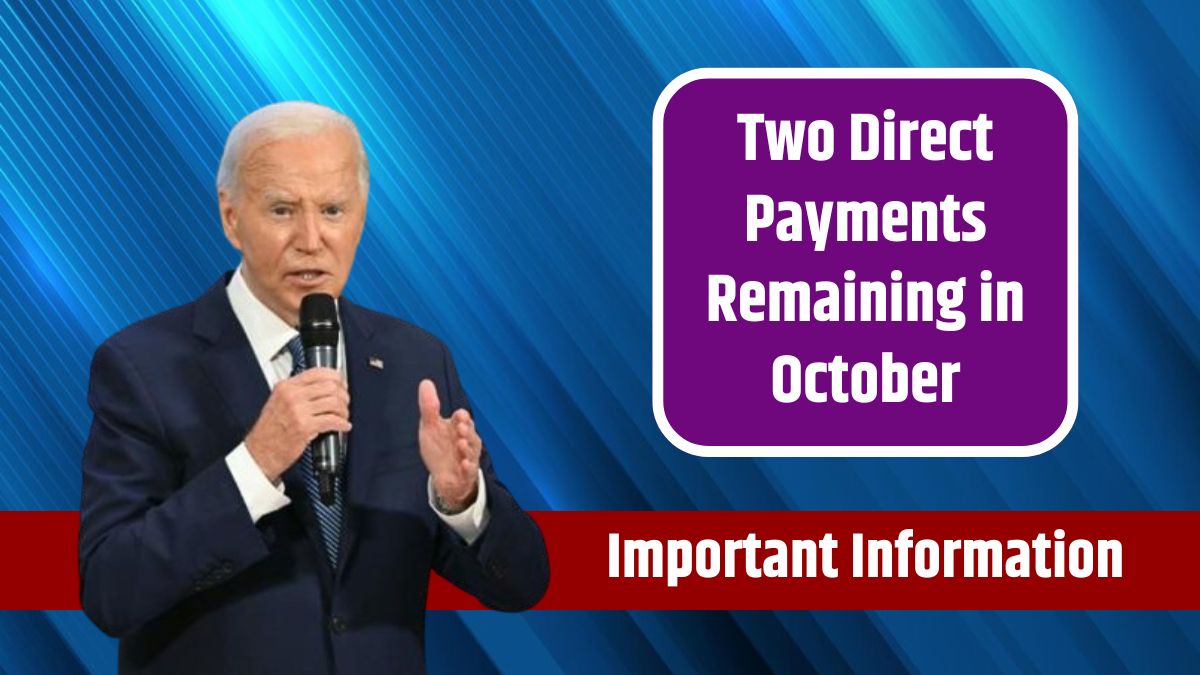As we head into mid-October, retirees and SSDI recipients are preparing for the next Social Security payment. With the updated benefit amounts for retirement and disability insurance recipients, it’s crucial to know when to expect your payment and know the eligibility rules for these dates.
Contents
- 1 Payment Dates
- 2 Conditions for Eligibility
- 3 Benefit Amounts
- 4 Maximizing Social Security
- 4.1 $1,450 SSI Payments Post-2025 COLA Increase – Verify Your Eligibility
- 4.2 FAQs
- 4.3 When is the next Social Security payment?
- 4.4 Can I receive SSI and Social Security at the same time?
- 4.5 What is the average Social Security benefit for retirees?
- 4.6 Social Security Maximum Benefit for Full Retirement Age Workers – Changes Following the 2025 COLA Increase
- 4.7 How much can SSDI recipients receive?
- 4.8 When will the next payment be after October?
Payment Dates
If you are a retiree or SSDI (Social Security Disability Insurance) recipient, the next Social Security check will arrive on October 16, 2024, provided that you meet certain criteria. This applies to individuals whose birthdays fall between the 11th and 20th of the month. However, to receive this payment, you must meet the following conditions:
- No Supplemental Security Income (SSI): You must not be receiving SSI benefits simultaneously.
- Benefits started after April 30, 1997: Your Social Security benefits must have started after this date.
If your birthday does not fall within the eligible range, don’t worry! Another payment will be sent out on October 23, 2024. Again, this payment is for recipients born between the 11th and 20th of the month and applies to both retirees and SSDI beneficiaries.
Conditions for Eligibility
While the payment dates are straightforward, it’s essential to meet several requirements to qualify for these payments. Here are the conditions to ensure you’re eligible for your October Social Security check:
- No SSI: You cannot receive SSI and Social Security simultaneously.
- Started benefits after May 1997: If you began receiving benefits before this date, you are not eligible for these particular payments.
- Compliance with SSA rules: Make sure you haven’t broken any Social Security Administration (SSA) rules.
- Birthday requirement: Your birthday must fall between the 11th and 20th for the October 16 and 23 payments.
After these October payments, there will be no further Social Security checks for the rest of the month. If you received your payment on October 3, 2024, you’ll receive your next check on November 1, 2024.
Benefit Amounts
The amount of money you receive from Social Security depends on various factors, such as your work history, age when filing, and whether you’re a retiree or SSDI recipient. Let’s break down the numbers for 2024:
| Beneficiary Type | Average Monthly Payment (2024) | Maximum Payment (2024) |
|---|---|---|
| Retirees | $1,920 | $4,873 |
| SSDI Recipients | $1,539 | $3,822 |
- Retirement benefits: The average Social Security check for retirees as of August 2024 is $1,920. However, some retirees who were high earners and worked for a long period can receive as much as $4,873 per month.
- Disability benefits: SSDI recipients, on average, receive $1,539. Like retirees, those with longer, higher-paying careers could get up to $3,822.
Maximizing Social Security
If you’re still working and want to ensure a larger Social Security check when you retire, there are several strategies to consider. Here are a few key factors that can help increase your monthly benefits:
- Earn the taxable maximum: This refers to the maximum amount of your earnings that are subject to Social Security taxes. If you earn the taxable maximum consistently, it can significantly boost your benefit.
- File at 70: Waiting until age 70 to file for Social Security allows you to take advantage of delayed retirement credits, which increase your monthly benefit.
- Work for at least 35 years: Social Security calculates your benefits based on your highest-earning 35 years. If you don’t work 35 years, zeroes will be factored into your benefit calculation, which will lower your payment.
- Have jobs covered by Social Security: Ensure that your jobs are covered by SSA so that you contribute enough to the system through payroll taxes.
It’s worth planning ahead to make sure you receive the highest possible payment in retirement. Social Security is a key component of most retirees’ income, and maximizing your benefit can make a significant difference in your financial security.
Looking at the payment schedule, it’s clear that understanding when you’ll get your money and ensuring you meet the eligibility criteria is vital for financial planning.
FAQs
When is the next Social Security payment?
The next payment is on October 16, 2024, for eligible recipients.
Can I receive SSI and Social Security at the same time?
No, receiving both benefits disqualifies you from these specific payments.
What is the average Social Security benefit for retirees?
As of 2024, the average benefit is $1,920 per month.
How much can SSDI recipients receive?
The average SSDI benefit is $1,539, with a maximum of $3,822.
When will the next payment be after October?
The next payment after October will be on November 1, 2024, for some recipients.













